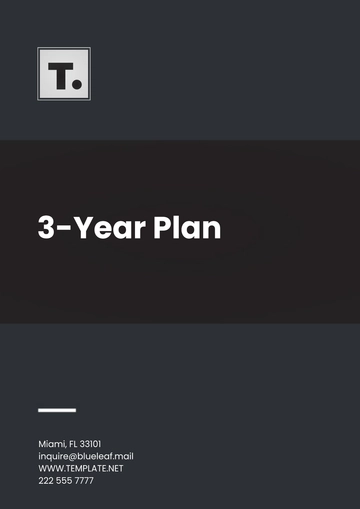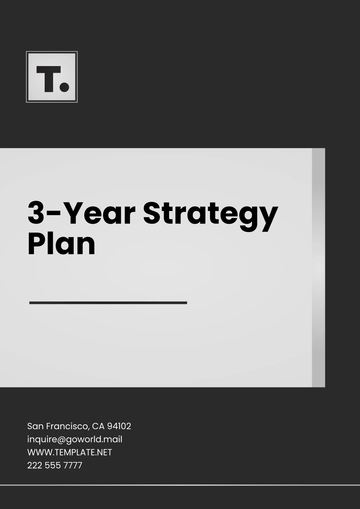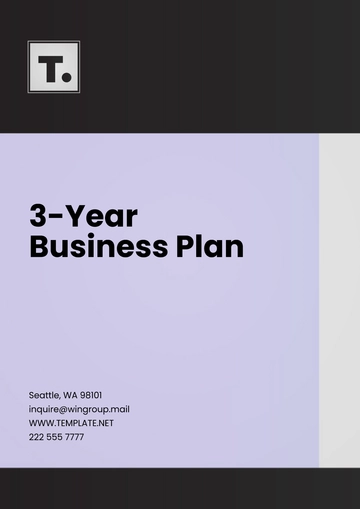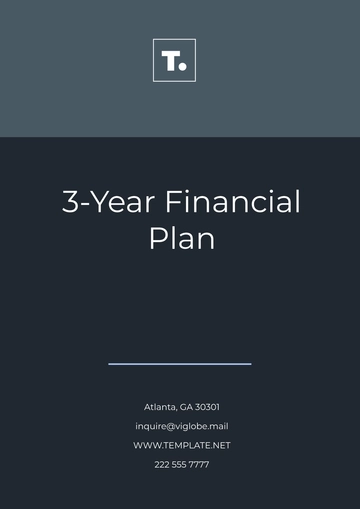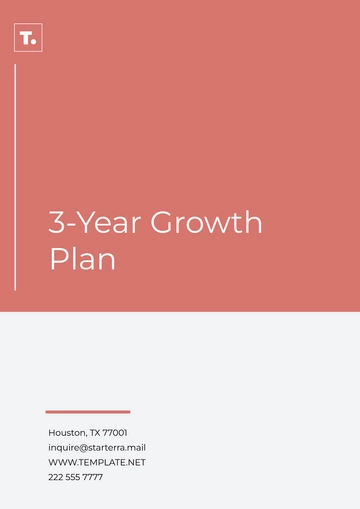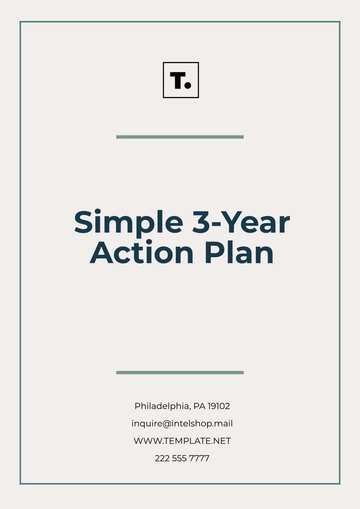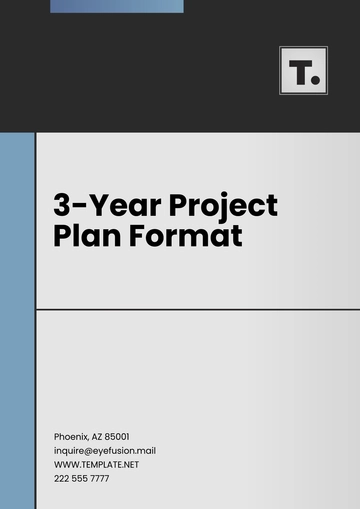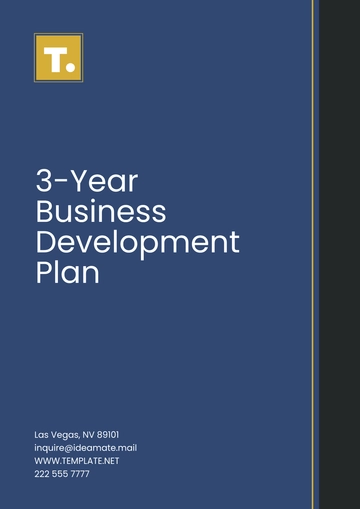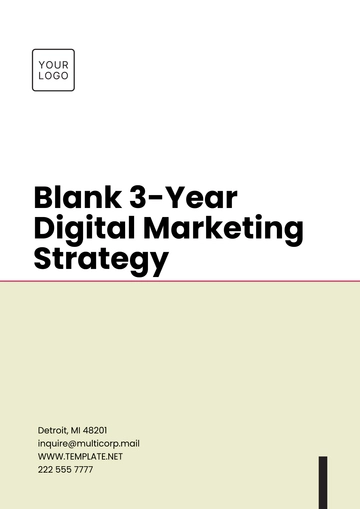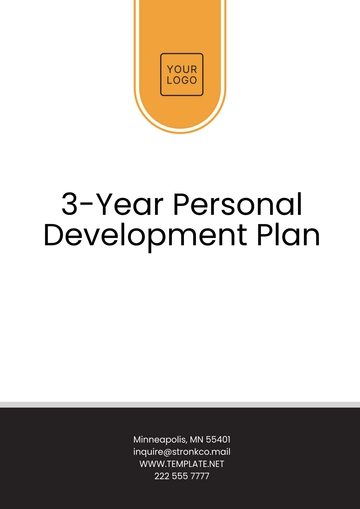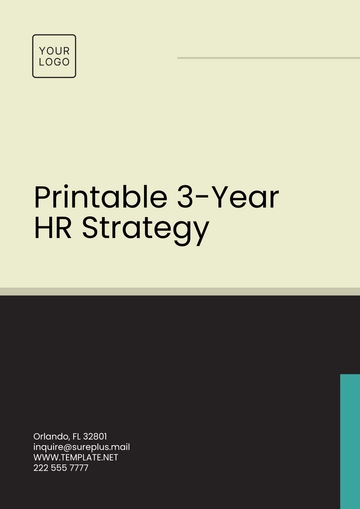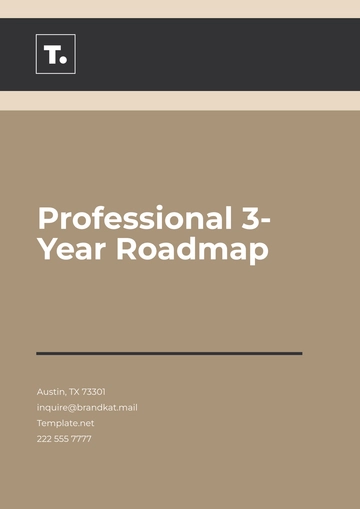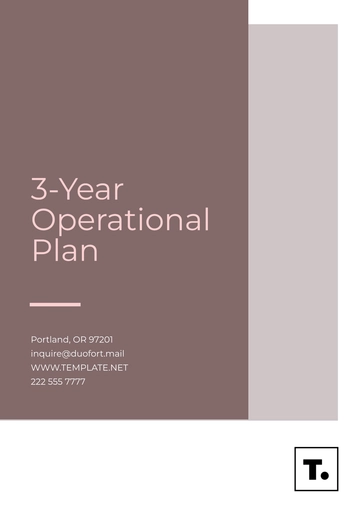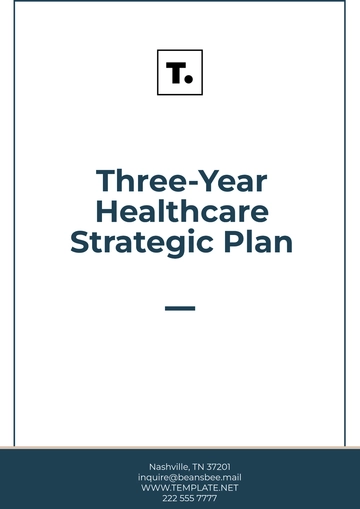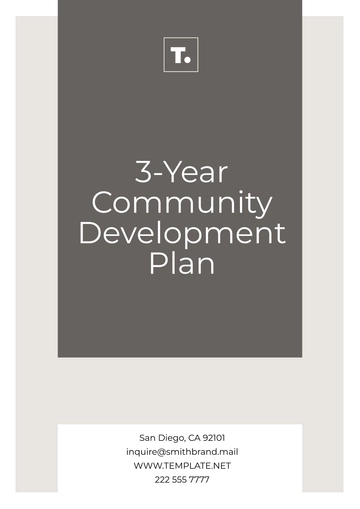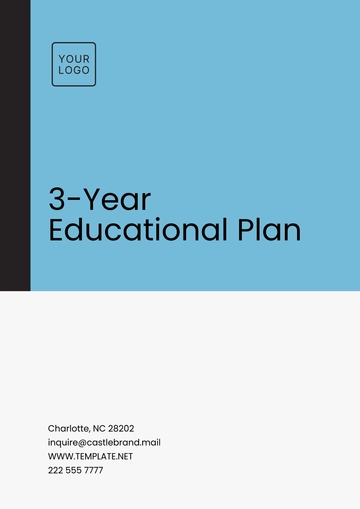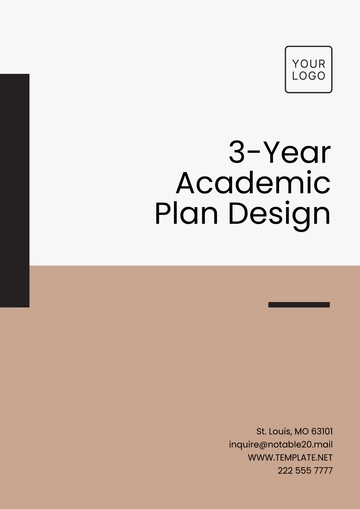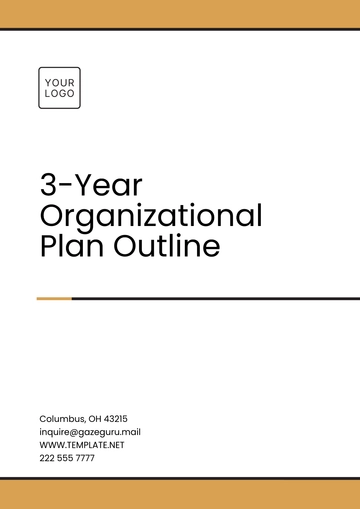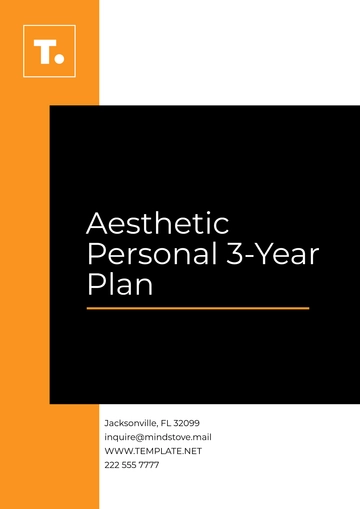Free 3-Year Academic Plan Design
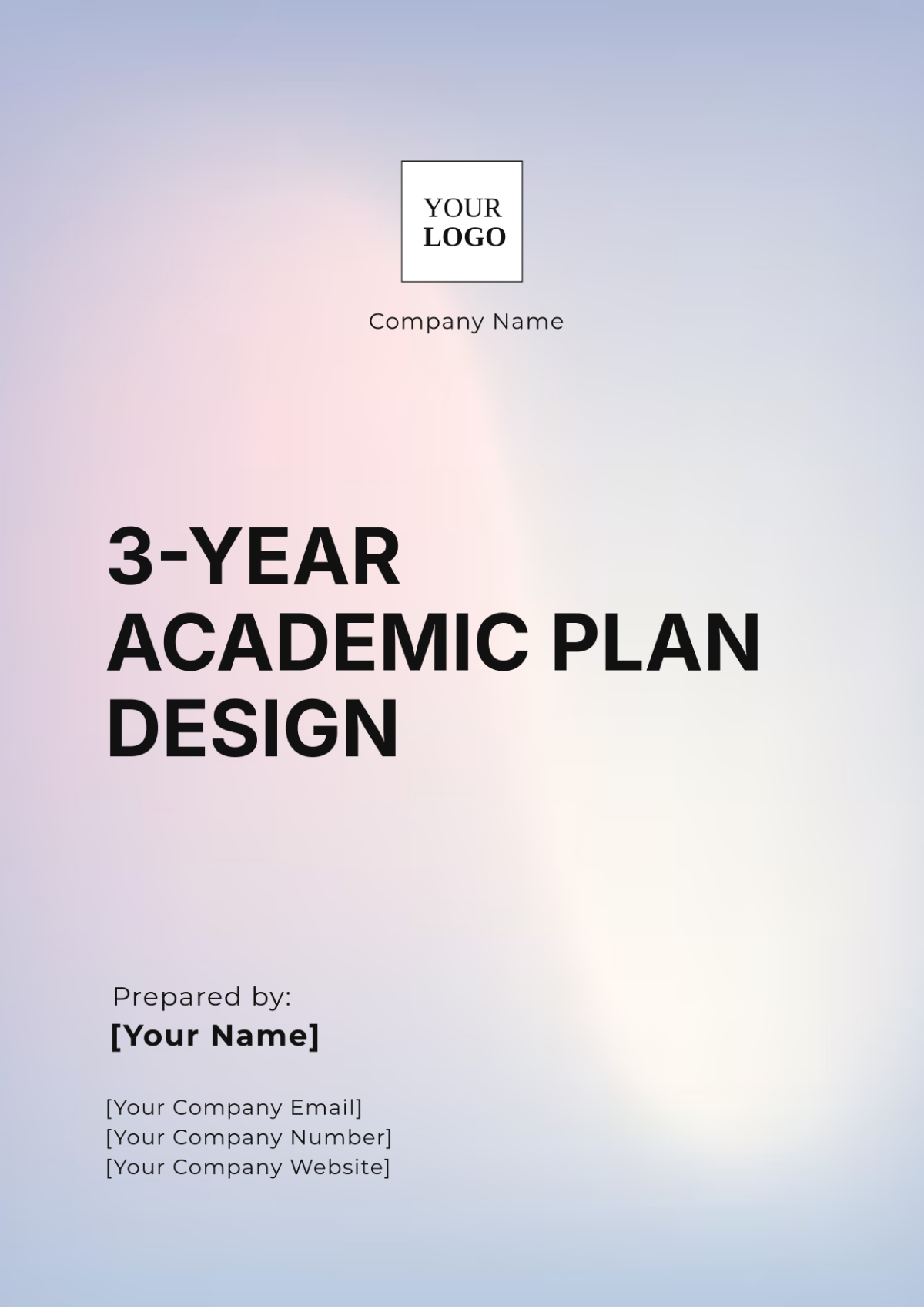
I. Introduction
This three-year academic plan outlines a clear pathway for students pursuing higher education, focusing on academic excellence, personal development, and career preparation. The plan is designed to help students build a solid foundation in their chosen field, develop critical skills, and transition smoothly from academic life to professional careers. By adhering to this plan, students will be well-equipped to meet the demands of both their academic and professional futures.
II. Year One: Foundation Building
A. Academic Goals
Establish a robust academic foundation in the selected major.
Cultivate effective study habits, time management skills, and a disciplined approach to coursework.
Explore personal academic interests through elective courses and extracurricular activities.
B. Coursework and Curriculum
During the first year, the focus is on completing essential core courses that provide a broad understanding of the major while exploring various elective courses for a well-rounded education.
Semester | Core Courses | Elective Courses |
|---|---|---|
Fall | Introduction to Major, Core Requirement 1 | Elective 1 |
Spring | Core Requirement 2, Core Requirement 3 | Elective 2 |
Fall: Take introductory courses in the major, along with one elective that aligns with either personal or professional interests.
Spring: Continue building knowledge with core courses, while selecting another elective to expand perspectives.
C. Extracurricular Activities
Student Involvement: Join student organizations related to the major or personal passions. This helps in building a network of peers and professionals while fostering leadership and teamwork skills.
Skill Development: Participate in workshops focused on academic writing, time management, or other skills essential for academic success.
Volunteering: Engage in volunteer activities to develop a sense of community and build a well-rounded profile.
D. Academic Support
Tutoring Centers and Writing Labs: Regularly utilize academic resources to strengthen understanding of complex subjects.
Office Hours: Meet with professors during office hours to clarify concepts, seek guidance on assignments, and build relationships for future recommendations.
III. Year Two: Skill Development
A. Academic Goals
Deep understanding of more complex and advanced topics within the field of study.
Develop critical research, problem-solving, and analytical skills through hands-on projects and advanced coursework.
Begin identifying areas of specialization within the major for deeper exploration.
B. Coursework and Curriculum
This year is focused on moving from introductory to more advanced courses, including specialization classes that align with career goals.
Semester | Advanced Courses | Elective Courses |
|---|---|---|
Fall | Advanced Requirement 1, Specialization Course 1 | Elective 3 |
Spring | Advanced Requirement 2, Specialization Course 2 | Elective 4 |
Fall: Enroll in advanced core courses that offer deeper insights into the major, while also beginning to specialize in a particular area of interest.
Spring: Continue with advanced coursework, focusing on projects that require research, critical thinking, and application of theoretical knowledge.
C. Extracurricular Activities
Internships/Part-time Work: Engage in internships or relevant part-time jobs to gain practical, hands-on experience in the chosen field. This provides insight into industry expectations and helps develop a professional network.
Leadership Roles: Take on leadership positions in student organizations to enhance soft skills such as communication, collaboration, and decision-making.
Research Opportunities: Explore potential opportunities for academic research with faculty members to strengthen critical thinking and problem-solving skills.
D. Academic Support
Regular Advisor Meetings: Meet regularly with academic advisors to assess progress, adjust academic plans as needed, and ensure alignment with long-term career objectives.
Peer Mentoring: Seek out or participate in peer mentoring programs, either as a mentor or mentee, to further personal and academic development.
IV. Year Three: Career Preparation
A. Academic Goals
Complete all remaining coursework required for graduation, ensuring fulfillment of both major and elective credits.
Focus on developing career readiness through experiential learning, internships, and professional development opportunities.
Finalize post-graduation plans, whether pursuing a career, graduate studies, or other professional endeavors.
B. Coursework and Curriculum
In the final year, students focus on integrating their knowledge and skills through capstone projects or thesis work and begin preparing for their transition into the professional world.
Semester | Capstone/Thesis | Elective/Internship |
|---|---|---|
Fall | Capstone Preparation, Elective | Internship |
Spring | Capstone/Thesis Completion | Advanced Elective |
Fall: Begin capstone or thesis preparation, which showcases the culmination of academic learning. Engage in an internship to gain practical insights and industry experience.
Spring: Complete the capstone project or thesis and finalize any remaining elective courses that enhance the academic profile or prepare for specific career goals.
C. Career Development
Career Fairs and Networking Events: Attend career fairs and networking events to connect with potential employers and industry professionals.
Resume and Interview Preparation: Use campus career services for assistance with resume writing, mock interviews, and job application strategies.
Job Applications: Begin applying to entry-level positions or graduate programs by the final semester, ensuring ample time for interview preparation and networking.
D. Academic Support
Advisor Guidance: Finalize post-graduation plans with academic advisors, discussing job search strategies, potential graduate school applications, or alternative career paths.
Alumni Networks: Leverage alumni networks for advice, mentorship, and job leads.
V. Conclusion
This three-year academic plan provides a well-rounded framework for success in higher education, ensuring students not only meet their academic goals but also acquire the necessary skills and experiences to excel in their careers. Through careful planning, engagement in extracurricular activities, internships, and utilization of academic support, students will be well-prepared to navigate the transition from college to the professional world with confidence and competence.
- 100% Customizable, free editor
- Access 1 Million+ Templates, photo’s & graphics
- Download or share as a template
- Click and replace photos, graphics, text, backgrounds
- Resize, crop, AI write & more
- Access advanced editor
The 3-Year Academic Plan Design Template from Template.net is fully customizable and editable, offering flexibility to fit any academic schedule. Easily adjust details using our Ai Editor Tool to create a personalized plan. Perfect for organizing long-term goals, this template ensures clarity and efficiency in academic planning. Download now and start editing!
You may also like
- Finance Plan
- Construction Plan
- Sales Plan
- Development Plan
- Career Plan
- Budget Plan
- HR Plan
- Education Plan
- Transition Plan
- Work Plan
- Training Plan
- Communication Plan
- Operation Plan
- Health And Safety Plan
- Strategy Plan
- Professional Development Plan
- Advertising Plan
- Risk Management Plan
- Restaurant Plan
- School Plan
- Nursing Home Patient Care Plan
- Nursing Care Plan
- Plan Event
- Startup Plan
- Social Media Plan
- Staffing Plan
- Annual Plan
- Content Plan
- Payment Plan
- Implementation Plan
- Hotel Plan
- Workout Plan
- Accounting Plan
- Campaign Plan
- Essay Plan
- 30 60 90 Day Plan
- Research Plan
- Recruitment Plan
- 90 Day Plan
- Quarterly Plan
- Emergency Plan
- 5 Year Plan
- Gym Plan
- Personal Plan
- IT and Software Plan
- Treatment Plan
- Real Estate Plan
- Law Firm Plan
- Healthcare Plan
- Improvement Plan
- Media Plan
- 5 Year Business Plan
- Learning Plan
- Marketing Campaign Plan
- Travel Agency Plan
- Cleaning Services Plan
- Interior Design Plan
- Performance Plan
- PR Plan
- Birth Plan
- Life Plan
- SEO Plan
- Disaster Recovery Plan
- Continuity Plan
- Launch Plan
- Legal Plan
- Behavior Plan
- Performance Improvement Plan
- Salon Plan
- Security Plan
- Security Management Plan
- Employee Development Plan
- Quality Plan
- Service Improvement Plan
- Growth Plan
- Incident Response Plan
- Basketball Plan
- Emergency Action Plan
- Product Launch Plan
- Spa Plan
- Employee Training Plan
- Data Analysis Plan
- Employee Action Plan
- Territory Plan
- Audit Plan
- Classroom Plan
- Activity Plan
- Parenting Plan
- Care Plan
- Project Execution Plan
- Exercise Plan
- Internship Plan
- Software Development Plan
- Continuous Improvement Plan
- Leave Plan
- 90 Day Sales Plan
- Advertising Agency Plan
- Employee Transition Plan
- Smart Action Plan
- Workplace Safety Plan
- Behavior Change Plan
- Contingency Plan
- Continuity of Operations Plan
- Health Plan
- Quality Control Plan
- Self Plan
- Sports Development Plan
- Change Management Plan
- Ecommerce Plan
- Personal Financial Plan
- Process Improvement Plan
- 30-60-90 Day Sales Plan
- Crisis Management Plan
- Engagement Plan
- Execution Plan
- Pandemic Plan
- Quality Assurance Plan
- Service Continuity Plan
- Agile Project Plan
- Fundraising Plan
- Job Transition Plan
- Asset Maintenance Plan
- Maintenance Plan
- Software Test Plan
- Staff Training and Development Plan
- 3 Year Plan
- Brand Activation Plan
- Release Plan
- Resource Plan
- Risk Mitigation Plan
- Teacher Plan
- 30 60 90 Day Plan for New Manager
- Food Safety Plan
- Food Truck Plan
- Hiring Plan
- Quality Management Plan
- Wellness Plan
- Behavior Intervention Plan
- Bonus Plan
- Investment Plan
- Maternity Leave Plan
- Pandemic Response Plan
- Succession Planning
- Coaching Plan
- Configuration Management Plan
- Remote Work Plan
- Self Care Plan
- Teaching Plan
- 100-Day Plan
- HACCP Plan
- Student Plan
- Sustainability Plan
- 30 60 90 Day Plan for Interview
- Access Plan
- Site Specific Safety Plan
